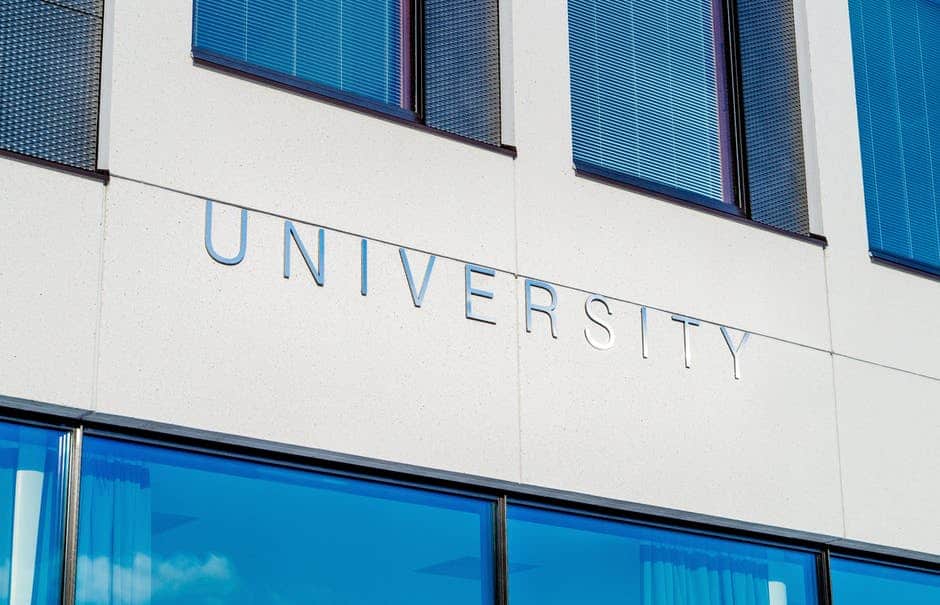Could the First French Language University in Ontario be in Mississauga?
Published August 29, 2017 at 2:02 am

French language postsecondary education is lacking in Ontario, but now, there are plans in place to create the first French-language university in the province somewhere in central and southwestern Ontario. Whether or not the university will have a home in Mississauga, one thing’s for sure – the tail end of Ontario might be on the cusp of attracting a ton of Francophones!
The province recently announced plans to create the first entirely French-language university in Ontario in consultation with the Francophone community.
“The French-language University Planning Board has provided recommendations to the government for the creation of a French-language university in central and southwestern Ontario, governed by and for Francophones,” said the province in a statement.
The planning board was established by the Ontario government in the fall of 2016 to provide recommendations for the new French-language university. A report was submitted in July of this year.
“This is a tremendous step forward in the creation of the first standalone French-language university in Ontario, governed by and for Francophones, which will provide access to high-quality French-language university education in the Greater Toronto Area (GTA) and central and southwestern Ontario,” said minister of advanced education and skills development, Deb Matthews.
While it’s true that central and southwestern Ontario is a large and general region, it’s also true that Mississauga is a growing city. Whether or not the city could handle a French-speaking university is definitely up for discussion.
The location of the university has not been confirmed, though one location was recommended and by the planning board – “preferably” downtown Toronto.
However, the ministry of education and the ministry of advanced skills and education have confirmed that no location has been confirmed, nor is the government leaning one way or another. Central and southwestern Ontario is the only location detail that has been confirmed.
“The Planning Board has made a number of recommendations regarding the potential location of a new campus for the university. At this point, no decision has been made,” the province told insauga.com.
So, why is the university proposed for this region of Ontario?
According to the province, Ontario is home to 611,500 Francophones. We have the largest population in Canada outside of Quebec, and central and southwestern Ontario are home to the fastest growing Francophone population in the country.
Moreover, there is a relatively large population of French-speakers in the GTA: a total of 430,000 people in the GTA speak French, which “makes it the fourth most important centre of French-language speakers in Canada.”
Here’s what the planning board recommended in terms of locations on the report:
- a site in close proximity to public transit, ideally a subway line, and accessible by other forms of regional, national and international transportation (bus, train, highways, airport);
- a site large enough to immediately accommodate innovative, open spaces that encourage the co-creation of knowledge, ideally 100,000 feet squared, and that will have room to grow in the future; and
- a site large enough to accommodate College Boreal and other francophone educational, creative, and professional partners
In the coming months, the province plans to accept some of the report’s recommendations and amend others – not only on location, but on suggestions like the university’s distinctive characteristics, areas of excellence in research, and proposals regarding governance and affiliations, or which other institutions to partner with – and introduce legislation to create the proposed university.
The majority of details have yet to be confirmed, but it’ll be years before there’s an official plan in place.
“It is within the power of universities, specifically of their respective boards of Governors, to conclude full or partial academic affiliation agreements and to put this network in place. This network could be established during the second phase of implementation of the French-language University, that is, during the 2020-2023 period,” said the report.
Back in 2015-2016, the government invested $87.9 million to support French-language postsecondary education – an increase of more than 71 per cent since 2003-2004, just over a decade ago – and with the proposed new university, future investments might only increase.
In total, a tremendous $204 million has been invested in capital projects since 2008 to support French-language postsecondary education.
To check out the report submitted by the French-language University Planning Board, click here.
Do you think Mississauga could support this university?
INsauga's Editorial Standards and Policies